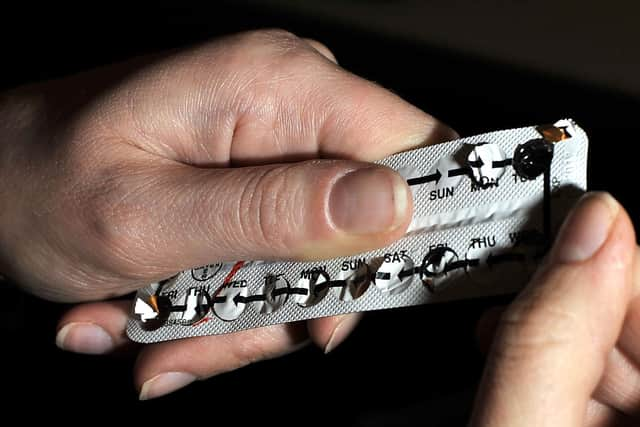Proportion of women in Nottinghamshire on contraception fell following pandemic
and live on Freeview channel 276
It follows the national trend, with the figures revealing nine per cent fewer women had access to long-acting reversible contraception in 2022 than in 2019, before the pandemic.
MSI Reproductive Choices, a non-governmental organisation providing reproductive healthcare, said while Covid-19 added pressure on healthcare services, many of the issues go back even further, with sexual and reproductive healthcare severely underfunded.
Advertisement
Advertisement
Office for Health Improvement and Disparities figures show 56.3 per 1,000 women in Nottinghamshire aged between 15 and 44 were prescribed long-acting reversible contraception in 2022 – which includes the non-hormonal copper coil, hormonal coil, and the hormonal implant.


This was down from 61.1 in 2019, but an increase from 53 per 1,000 women the year before.
Across England, 44.1 per 1,000 women had a prescription for LARC in 2022. It was up from 41.8 per 1,000 women in 2021, but remained below pre-pandemic levels of 49.2 per 1,000.
However, Simphiwe Sesane, MSI Reproductive Choice's UK contraceptive and sexual health nurse consultant, said sexual and reproductive healthcare has been overstretched since before the pandemic.
Advertisement
Advertisement
She added: “A perfect storm of cuts, fragmented commissioning and an ageing workforce moving into retirement mean all too often I speak to people who have become pregnant while on contraception waiting lists. It’s simply not good enough.
“Finding the right contraception is transformative, yet too many are still struggling to get the information and support they need, particularly for long-acting methods like the coil and implant.
“These are some of the most effective ways of preventing unintended pregnancy and lack of access will no doubt be contributing to the unprecedented demand we are seeing for abortion care.”
The figures revealed a disparity between the most and least deprived groups nationally, with the rates at 36.6 and 53.7, respectively – a gap of 17.1 per 1,000 women.
Advertisement
Advertisement
Ms Sesane said the cuts have disproportionately affected the poorest parts of the country, meaning those least able to afford an unintended pregnancy are the most likely to experience one.
In Nottinghamshire, 38.9 per 1,000 women aged under 25 and 54.8 per 1,000 women aged over 25 cited a form of LARC as their main method of contraception in 2022.
Meanwhile, across England, the proportion of women prescribed short acting combined hormonal contraception in 2022 was 8.1 per 1,000, meaning it halved compared to a rate of 16.1 in 2019.
The figure stood at 8.8 per 1,000 women in Nottinghamshire – down from 15.8 three years prior.
Advertisement
Advertisement
Dr Janet Barter, president of the Faculty of Sexual and Reproductive Healthcare, said: “Access to the full range of contraceptive methods, including LARC, is a fundamental right.
“A combination of funding cuts and fragmented commissioning services means that care is not structured around women’s needs, negatively affecting access to essential healthcare.
“We call on the Government to take urgent action to address these barriers. It is crucial that everyone in need of contraception can access comprehensive care wherever and whenever they choose to.”